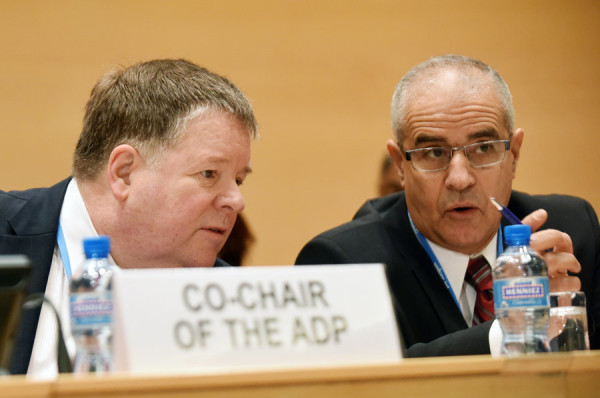Work towards a new universal climate change agreement was apparently strengthened on Monday, October 5, 2015 through the issuance of the first comprehensive draft of the agreement.

But experts are expressing fears that a draft agreement is not what is needed right now but a negotiating text.
The Co-Chairs of the Ad hoc working group on the Durban platform (ADP), the body tasked with negotiating the agreement, prepared the draft, which contains the basis for negotiation of the draft Paris climate package. In addition to the agreement, the package contains a draft of the decision that will operationalise the agreement from 2020 and a draft decision on pre-2020 ambition.
The documents can be found here: Agreement and decision to operationalise the agreement: http://unfccc.int/resource/docs/2015/adp2/eng/8infnot.pdf
Decision on pre-2020: http://unfccc.int/resource/docs/2015/adp2/eng/9infnot.pdf
The draft of the agreement is a concise basis for negotiations for the next negotiating session from 19-23 October 2015 in Bonn. Co-Chairs Ahmed Djoghlaf of Algeria and Daniel Reifsnyder of the United States prepared the draft in response to a request from countries to have a better basis from which to negotiate.
In a reaction, a source close to Nigeria’s Climate Change Department siad: “Going by the outcome of the last meeting in Bonn, what the world is expecting from the Co-Chairs is a negotiating text, and not a draft agreement.
“The draft is a wrong approach that will delay the decision process by about three days out of the five days we have in Paris.”
According to him, Nigeria’s INDC has been completed, and waiting for President Muhammadu Buhari’s endorsement before its official release and dispatch to the UNFCCC, which pointed out that governments are committed to reaching the new agreement at the UN Climate Change Conference to be held in Paris in December this year.
